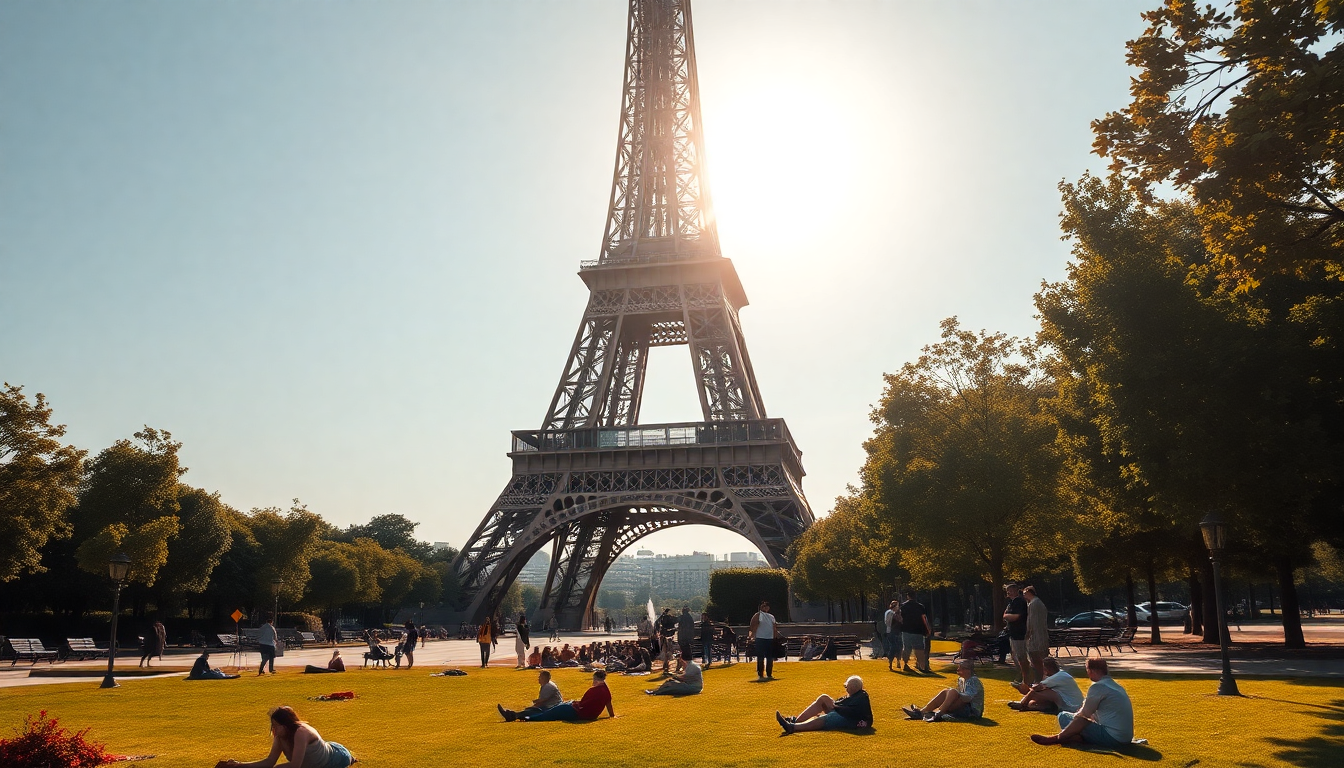Table of Contents
The Eiffel Tower, an iconic symbol of Paris and one of the most recognizable landmarks in the world, has temporarily closed its summit to visitors due to a severe heat wave sweeping across France and much of Europe. With temperatures in the city set to soar to a sweltering 36 degrees Celsius this week—and parts of southern France even reaching 40 degrees—this decision highlights the importance of keeping visitors safe during extreme weather conditions. Have you ever thought about how weather impacts travel plans?
Impact of the Heat Wave on Tourist Attractions
This stunning tower, completed back in 1889 for the World’s Fair, has been at the heart of Parisian tourism, drawing millions of visitors each year. However, with temperatures rising, officials are taking proactive steps to ensure the comfort and safety of both guests and staff. While access to the first and second levels of the tower remains open, those without pre-booked tickets are being encouraged to postpone their visits until the weather improves. Isn’t it interesting how tourism must adapt to the challenges posed by nature?
The closure of the summit isn’t just a standalone event; it’s part of a growing trend affecting tourist destinations all over Europe. For example, Belgium’s Atomium has also adjusted its visiting hours in response to the heat. These decisions underline a crucial shift in how attractions are managing climate challenges while keeping visitor safety and satisfaction at the forefront. What do you think about the balance between tourism and safety?
Government Response and Public Sentiment
The French government has issued high-level heat wave alerts across 84 regions, emphasizing the seriousness of the situation. Politically, far-right leader Marine Le Pen has voiced her criticism regarding the government’s handling of this heat crisis. She’s calling for a comprehensive air conditioning plan to help ordinary citizens, suggesting that while the general public suffers from the heat, those in power enjoy a more comfortable situation. This sentiment resonates deeply with many who feel the impact of extreme weather without sufficient support. Have you ever felt that kind of disconnect?
The public’s response to these heat waves is complex, shedding light on larger issues like climate change and social equity. As temperatures climb, discussions about government responses to climate-related challenges are becoming more urgent, with many advocating for improved infrastructure to support citizens during extreme weather events. How can we ensure that everyone has the resources they need during such times?
Looking Ahead: Trends and Predictions
This ongoing heat wave serves as a stark reminder of our changing climate and its repercussions for tourism and infrastructure. Moving forward, it’s essential to consider how these events will influence not only visitor experiences at iconic landmarks but also broader tourism trends. With climate change increasingly affecting travel patterns, local economies, and even real estate markets, stakeholders need to rethink their strategies. What changes do you think we’ll see in the future?
When it comes to real estate, the mantra remains: location is everything. Properties in areas with strong climate resilience plans are likely to attract more interest from investors and buyers alike. As we look ahead, understanding how environmental factors intertwine with market dynamics will be crucial for making informed investment decisions. Are you ready to explore how climate change could shape your future investments?


